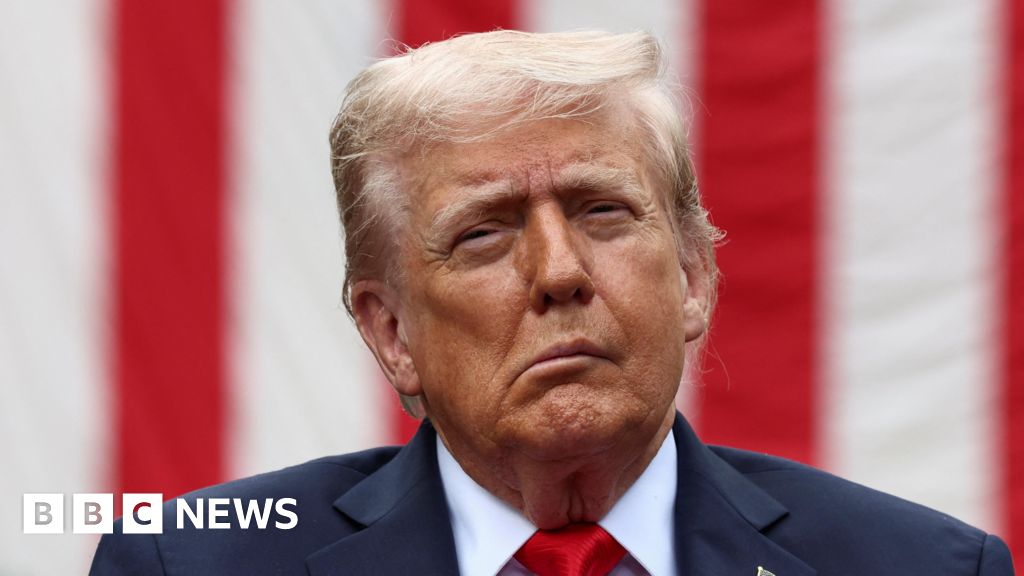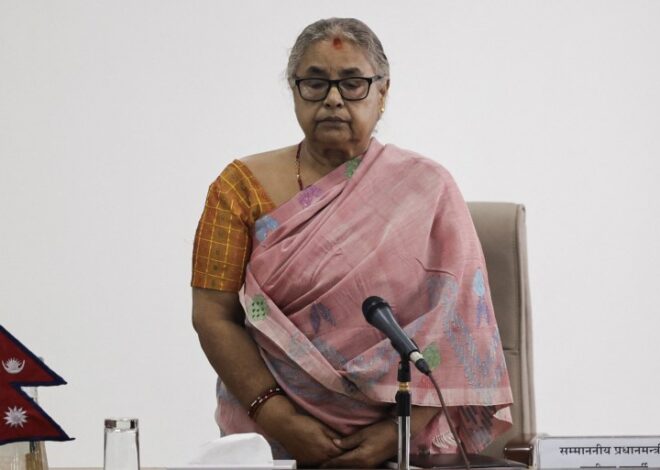
Trump 'ready' to sanction Russia if Nato nations stop buying its oil

Trump Signals Readiness for Sanctions on Russia if NATO Nations Halt Oil Purchases
In a recent statement, former U.S. President Donald Trump expressed his willingness to impose stricter sanctions on Russia, contingent upon NATO countries ceasing their purchases of Russian oil. This announcement was made through a post on his Truth Social platform, where he emphasized the need for a collective effort among NATO allies to address the ongoing conflict in Ukraine.
Conditions for Sanctions
Trump’s declaration came with a clear stipulation: he would be prepared to implement “major sanctions on Russia” only after NATO nations had collectively agreed to stop buying Russian oil. He stated, “I am ready to ‘go’ when you are. Just say when?” This statement underscores Trump’s belief that the financial transactions involving Russian oil significantly undermine NATO’s negotiating power with Moscow.
In his remarks, Trump characterized the continued purchase of Russian oil by NATO countries as “shocking,” arguing that it weakens the alliance’s bargaining position. He also suggested that NATO should impose tariffs ranging from 50% to 100% on China, claiming that such measures would further diminish China’s influence over Russia.
European Energy Dependence
The backdrop of Trump’s comments is the evolving energy landscape in Europe, particularly since Russia’s full-scale invasion of Ukraine in 2022. At that time, the European Union relied on Russia for approximately 45% of its gas needs. However, this figure is projected to drop significantly to around 13% in the current year. Despite this decline, Trump’s remarks indicate that he believes further action is necessary to fully sever ties with Russian energy.
The urgency of Trump’s appeal aligns with broader concerns among NATO allies regarding Russian aggression. Recently, tensions escalated after over a dozen Russian drones reportedly entered Polish airspace, a move that Poland described as deliberate. In response, NATO allies, including Denmark, France, and Germany, have initiated a new mission aimed at reinforcing the alliance’s eastern flank by relocating military assets to the region.
Ukrainian President’s Call to Action
Trump’s comments echo the sentiments expressed by Ukrainian President Volodymyr Zelensky, who has also urged European nations to halt all energy purchases from Russia. In a recent interview with ABC News, Zelensky stated, “We have to stop [buying] any kind of energy from Russia, and by the way, anything, any deals with Russia. We can’t have any deals if we want to stop them.” This call to action highlights the urgent need for a unified response to Russian aggression in Ukraine.
Since the onset of the conflict, European countries have reportedly spent around €210 billion (£182 billion) on Russian oil and gas, funds that have likely contributed to the financing of the invasion. The European Union has previously committed to phasing out these purchases by 2028, but there are increasing calls from the U.S. and other allies for a more expedited timeline.
Challenges Ahead
While Trump’s message was directed at NATO, it is important to note that this includes member nations such as Turkey, which has maintained a closer relationship with Russia compared to other alliance members. Convincing Turkey to reduce its oil imports from Russia presents a significant challenge, given its economic ties and strategic interests.
Trump’s recent threats of heightened sanctions are not new; he has made similar statements in the past, particularly after Russia’s most intense bombardment of Ukraine since the war began. When asked by reporters if he was prepared to escalate punitive measures against Moscow, Trump affirmed, “Yeah, I am,” although he did not provide specific details at that time.
The Broader Context
The geopolitical landscape surrounding the conflict in Ukraine continues to evolve, with various nations reassessing their energy dependencies and strategic alliances. Trump’s call for NATO unity in sanctioning Russia reflects a growing urgency among Western leaders to present a united front against Russian aggression. As the situation develops, the actions taken by NATO countries in response to these calls will be pivotal in shaping the future of the conflict and the stability of the region.
In conclusion, Trump’s readiness to impose sanctions on Russia hinges on NATO’s collective action to halt oil purchases. The ongoing discussions among allied nations and the responses to the evolving conflict in Ukraine will be crucial in determining the effectiveness of these potential sanctions.
Key Facts
– Donald Trump is prepared to impose tougher sanctions on Russia if NATO nations stop buying Russian oil.
– He described the purchases of Russian oil as “shocking” and detrimental to NATO’s negotiating power.
– European reliance on Russian energy has significantly decreased since the invasion of Ukraine, from 45% in 2022 to an expected 13% in 2023.
– Ukrainian President Zelensky has called for a complete cessation of energy deals with Russia.
– Trump’s remarks included a suggestion for NATO to impose tariffs on China to weaken its influence over Russia.
Source: www.bbc.com


